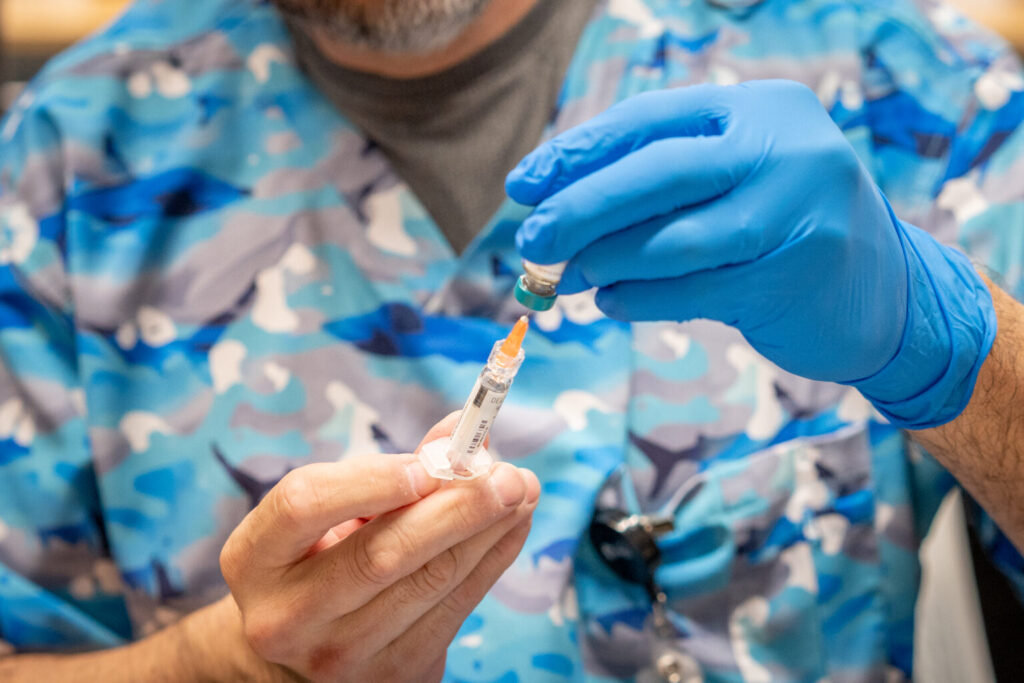Florida’s Vaccine Mandate Phase-Out Raises Concerns Among Health Experts
In a groundbreaking announcement, Florida’s state officials declared their intention to phase out all mandates requiring vaccinations for children, making it the first state in the nation to pursue such a significant policy shift. While proponents argue for parental choice and medical freedom, public health experts warn that this decision could escalate the risk of outbreaks of potentially fatal diseases.
The Importance of Childhood Vaccinations
Vaccines have been essential in protecting children against several serious illnesses, including polio and measles. Historically, students have been mandated to receive these vaccinations to maintain community health and prevent outbreaks. According to a recent CBS News survey, a substantial majority of Americans believe it is vital for the government to promote vaccinations for diseases such as measles, mumps, and rubella.
Recent years have seen a troubling trend: a rise in vaccine exemptions granted for non-medical reasons, leading to declining vaccination rates across the country. Florida’s initiative, which represents a comprehensive overhaul of state vaccine regulations, may further exacerbate this decline.
Understanding Herd Immunity
Experts emphasize the significance of maintaining high vaccination rates to achieve herd immunity—a form of indirect protection that occurs when a large percentage of a population becomes immune to a disease. Dr. Philip Huang from the Dallas County Health and Human Services Department underscored the necessity of mandatory vaccinations in safeguarding not only individual children but the entire community.
“It’s essential to bolster vaccination levels to protect everyone,” he stated, highlighting that high vaccination rates minimize the likelihood of disease transmission, allowing children to stay healthy and in school.
National Vaccine Mandate Landscape
While Florida is taking the lead in abandoning vaccine mandates, the timeline for these changes remains unclear. Some requirements could be modified by the state’s health department, while others may require legislative backing. Governor Ron DeSantis has indicated plans for a “medical freedom package” to be introduced in the next legislative session, aimed at enhancing personal choice regarding medical interventions.
Idaho recently enacted the “Idaho Medical Freedom Act,” which loosens immunization requirements, although it does not match the extent of Florida’s proposal. Other states like Montana and Iowa are also engaging in discussions surrounding vaccine legislation that could limit the use of specific vaccine types.
Current Trends in Vaccine Exemptions
Despite a generally favorable view of vaccine mandates among parents from various political perspectives, recent policy changes at the state level have contributed to increased exemption rates. Currently, over ten states have revised their vaccination requirement policies, which may potentially enable more students to opt out of necessary vaccinations.
The following table illustrates the percentage of vaccine exemptions by state for the 2024-2025 school year:
| State | Exemption Rate (%) | Non-Medical Exemptions (%) |
|---|---|---|
| Idaho | 15.4 | 15.1 |
| Alaska | 9.4 | 8.9 |
| Texas | 6.0 | 5.5 |
Consequences of Decreasing Vaccination Rates
Health professionals warn that a decline in vaccination rates can lead to serious outbreaks of preventable diseases. The U.S. recently experienced the highest number of measles cases in three decades, primarily in communities with low vaccination rates, highlighting the immediate risks associated with insufficient immunization.
Experts remind us of the crucial victories achieved through vaccination. The polio vaccine, for instance, drastically reduced cases from tens of thousands to nearly zero. The failure to maintain robust immunization levels can reverse this progress, putting countless lives at risk.
In conclusion, as Florida sets the stage for deregulating vaccine mandates, the repercussions on public health remain to be seen. Stakeholders, from policymakers to parents, must carefully weigh the implications of such changes as the nation grapples with the balance between medical autonomy and communal health.

